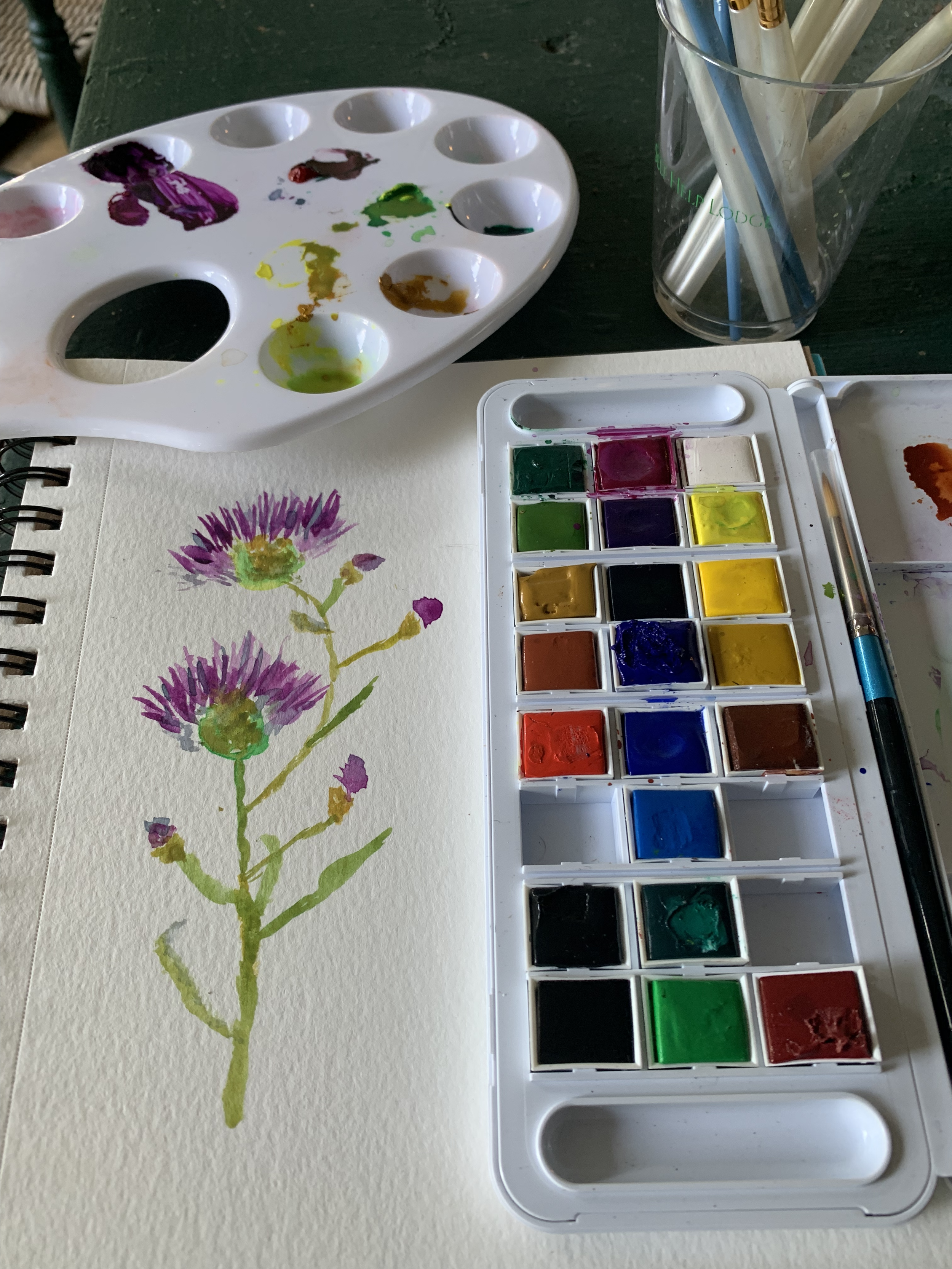Good Enough
This is the end of my second week in Eagles Mere, the little village on top of a mountain, where I have spent part of every summer of my life like my mother before me.
I often tell children in my school that we carry ourselves with us. What I have observed in myself over the last two weeks is, despite the change in venue, habits persist from place to place. My daily practices, started in joy—water coloring, chair yoga, even writing—begin to feel, swiftly, like obligations—as if I am failing if I am not faithful, not improving. If I don’t practice every day, I fall short of my own expectations. If my flowers are cockeyed, I feel exasperated with my incompetence. How quickly that wondrous beginner’s mind devolves into self-criticism. I am not auditioning for a spot with Cirque de Soleil based on my flexibility, nor I am aiming to become a world-famous water colorist. The only person judging me is me—with my absurd and historical feelings of inadequacy. What makes me so tough on myself? The sense I have something prove--even to myself—is relentless.
My younger daughter would attribute my sense of not being enough to intergenerational trauma—events that I could not control left me fearful, helpless, feeling I must strive towards unreachable goals. Or is it gendered? Is it years of subliminal patriarchal messaging to an ambitious woman? Or some combination of the two? In college, I remember worrying my acceptance had been an admissions error—full-blown imposter syndrome. Perhaps I wasn’t really Ivy League material. During our infertility years, again I felt crushingly inadequate. I could not get pregnant or stay pregnant. Self-doubt still nibbles. Despite the fact that I know I am accomplished, I worry still that I that I want too much—more than my share. To freight my chair yoga practice and fledgling watercolor experiments with all this feels excessive.
I can choose not to listen to that little voice inside my head. I can ignore her when she suggests that I am falling short if I am not doing chair yoga daily or improving my brush technique. I reject the adage “practice makes perfect.” The word practice—both noun and verb—comes from the Old French verb, practiser—to perform, to carry out. There is nothing in the word’s origins that suggests perfection or rigidity or good enough. I am determined to practice my practices with no end goal, without judging my progress. What these two practices offer me is ritual—it is fun to give them time each day, time that is hard to find during the school year. Each is an opportunity for self-care and for pleasure—I do not need to turn them into sticks to beat myself with.
In one of my watercolor books, the author advises painters not to be afraid, to play with color, to embrace serendipity, to make mistakes. In these next two weeks of practice, I commit to banishing that carping self-critic. Do you remember one of the Mrs. Piggle Wiggle stories when the child said to a parent, “I’ll do it because I want to, not because you tell me to!” No doubt Mrs. Piggle Wiggle had a brilliant intervention for said miscreant, but though I recall no other details of the chapter, I do remember that mantra, and I’ve chosen to adopt it. I commit to doing chair yoga and water coloring when I please, not out of an overdeveloped sense of duty or obligation, but because I want to practice, to play, to indulge. I commit to watching the glorious lake and feeling enough.
When we were young, Seth was the Assistant Lighting Designer on A.R. Gurney’s play, Painting Churches. The play follows Mags, an artist, and her distant, even aloof, WASPY parents. There was much in the play I recognized—after all, I am writing this blog in Eagles Mere, high WASP territory…Her parents are dismissive of Mags’ talents in a way my parents were not; my mother and father were my champions. At the end of the play, Mags says, “Well, what did you know about my abilities? … You see, I had … I mean, I have abilities … (struggling to say it) I have abilities. I have … strong abilities. I have … very strong abilities. They are very strong … very very strong …” Over the years, I have coached many students who have used this monologue—it has resounded in my memory for more than 40 years. I have abilities, too—we all do, and I have nothing to prove.
